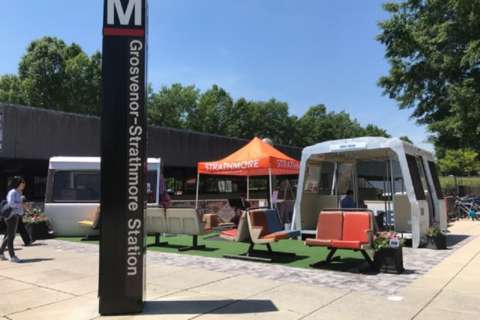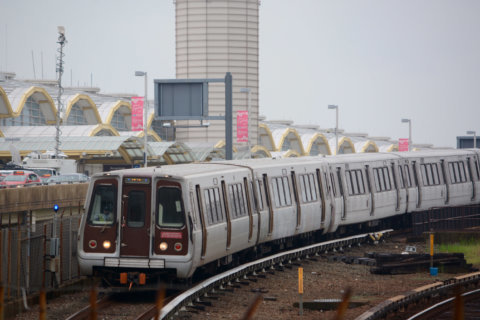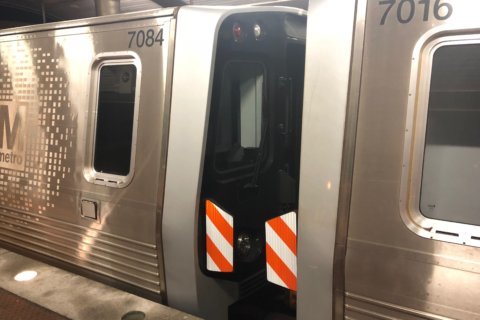WASHINGTON — Metro would open up its stations and other property to food and drink sales, under changes set to be presented Thursday to a Metro Board committee.
Revised Metro use regulations would also permit Metro’s management to allow the renting out of any space on Metro property for private, commercial use, such as electronics sales kiosks or charging stations, health and beauty product vendors, photo booths, lottery sale machines, or package and mail pickup lockers.
The changes would restrict the sale of food and drinks to areas outside of a Metrorail station’s fare gates, most likely in the open areas just outside of stations.
“Staff recommends permitting the sale of food and drink to areas outside the Metrorail stations’ paid area, thereby allowing the sale of food and drink in locations appropriate for retail and community activity,” a memo to the Metro Board said.
As an example, the presentation suggests the New Carrollton Metro station parking lots could host food trucks or other food options for office workers on weekdays.
This is the first update to Metro’s current “Use Regulations” since 2008. Among the cleanup items, it removes payphones from the list of permitted uses, since Metro no longer installs those.
It also adds information about dockless bikeshare and scooter operators that outlines a future requirement for a Metro permit. Those dockless vehicles must be left at or near bike racks if left on Metro property, the revised regulations said.
For the bikeshare and scooter companies, Metro plans to charge a $3,500 base permit fee.
Permit applications for civic or nonprofit use would cost $100, while the application fee for a commercial use would be $200, regardless of the revenue generated.
Commercial filming in stations would cost $1,500 per day, and renting a bus bay for an intercity service costs $5,000 per year.
Allowing Metro management to execute commercial deals on their own without board approval would increase the odds of deals happening, Metro staff said, which could help increase revenue. Since 2004, commercial uses other than food and drink sales have been allowed only with board approval.
Last year, the Metro Board began to allow things such as farmers markets in Metro-operated parking garages on weekends and holidays only without board approval.
The new change would allow weekday farmers markets, pop-up food or grocery options, or other food or snack stalls, similar to what Metro tried at Grosvenor-Strathmore.
The sale of tobacco, drugs, firearms or illegal substances would still be prohibited, and eating or drinking in the Metro system would remain against the law.
Organizers of farmers markets, stores or other activities would be required to pay a permit fee and comply with maintenance and safety rules.
The permit applications would be looked at based on considerations of whether it has any negative impact on Metro, whether it interferes with Metro riders and workers, whether it enhances Metro service, whether it generates additional revenue for Metro, and whether it “improves local place-making and community building.”
The use regulations allow for permits for filming, advertising, newspaper vending, temporary commercial stalls, ATMs, communications equipment and cables, electronic displays and digital advertising, public and community uses, or commercial uses such as grocery pickup locations or vending machines.
Permits would not be issued for any use that would “undermine, show unfavorably or compete with WMATA’s brand and/or Metro transit services.”








